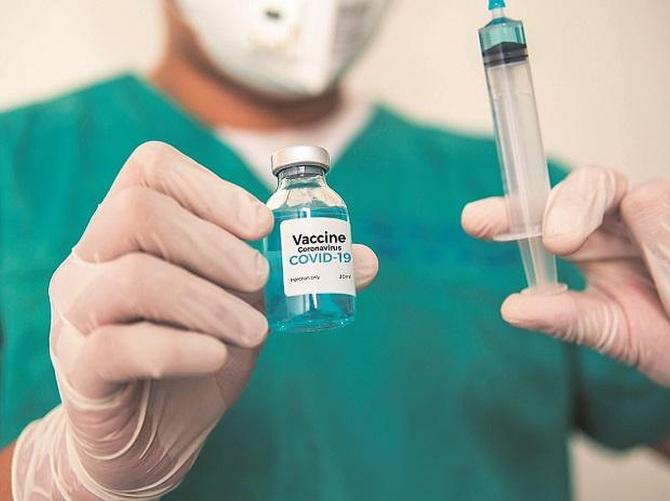The pharma company has developed detailed logistical plans and tools to support effective vaccine transport, storage, and temperature monitoring.
Sohini Das and Ruchika Chitravanshi report.

United States pharma giant Pfizer is working out elaborate cold storage plans to ensure temperature integrity of its vaccine that requires to be maintained at -70 degree Celsius.
Pfizer became the first vaccine maker to seek emergency use authorisation from the Drug Controller General of India.
It applied for approval of its mRNA vaccine candidate, co-developed with BioNTech, on December 4.
The company has developed detailed logistical plans and tools to support effective vaccine transport, storage, and temperature monitoring.
“Globally, we will be utilising road and air modes of transportation via our carrier partners,” a Pfizer spokesperson said.
“We have developed packaging and storage innovations to be fit for the range of locations around the globe where we believe vaccinations will take place,” the Pfizer spokesperson added.
Pfizer has planned three options for storage.
First, ultra-low temperature freezers available commercially that can extend shelf life for up to six months.
Second, specially-designed, temperature-controlled thermal shippers, in which doses will arrive and can be used as temporary storage units.
“The shipper can maintain the recommended storage condition -70 degree Celsius ±10 degree Celsius for 10 days unopened, which allows for transportation globally. Once opened, and if being used as temporary storage by a vaccination centre, it can be used for 30 days by re-icing every five days,” the spokesperson said.
Third, is to have refrigeration units that are commonly available in hospitals where vaccine can be stored for five days at 2-8 degree Celsius.
“We will also utilise GPS-enabled thermal sensors that will enable us to track location and temperature across their pre-set routes,” the spokesperson said.
Experts said maintaining the integrity of the vaccine is not going to be an easy task.
India does not have ultra-low temperature freezers in its vaccine network, a cold-chain equipment maker said.
"The vaccine network has freezers that can maintain 2-8 degree Celsius. Anything other than this would require investment from the government running into thousands of crores,” said the source.
It is not clear whether the DCGI would be waiving the requirement to conduct clinical trials on Indian population.
Drugs and Clinical Trial Rules, 2019, does have a provision that may allow a company to bypass the requirement of local trials.
"If it can provide satisfactory data showing a significant number of Asians in its global clinical trials, the EUA may be considered. The subject expert committee would be deliberating on this. No meeting has been convened yet. One has to respond to such an application within 90-days,” a Central Drugs Standard Control Organisation source said.
During the H1N1 pandemic in 2010, Pfizer was asked to conduct an India trial for its vaccine on smaller sample size, but the talks fell through.
“Every country has its own norms for according approvals. This is why India had the rule to conduct human trials, among say 500 persons, before approval,” Sujatha Rao, former health secretary, said.
She said this requirement has since been dropped in 2019 to enable flexibility for addressing emergencies.











